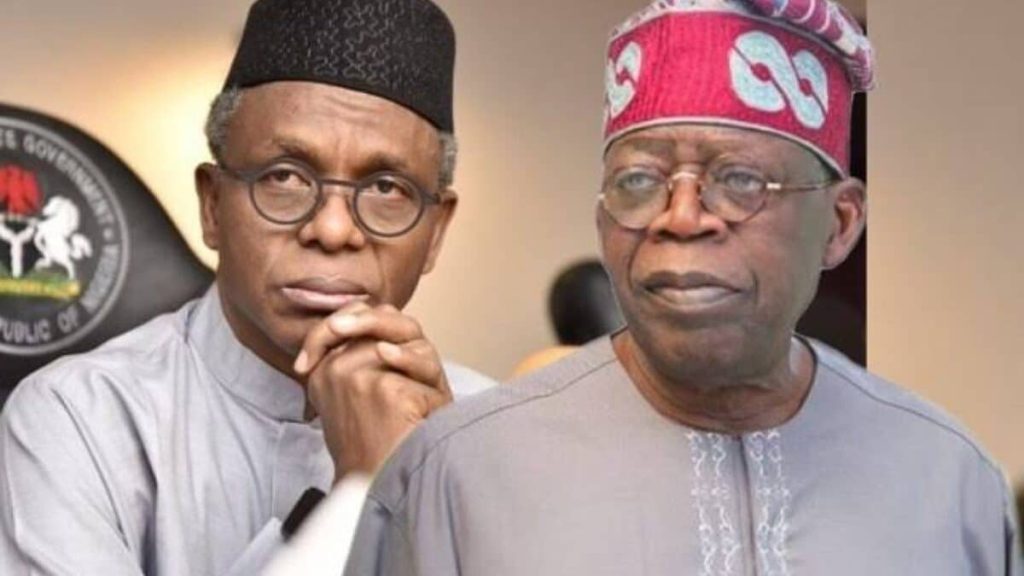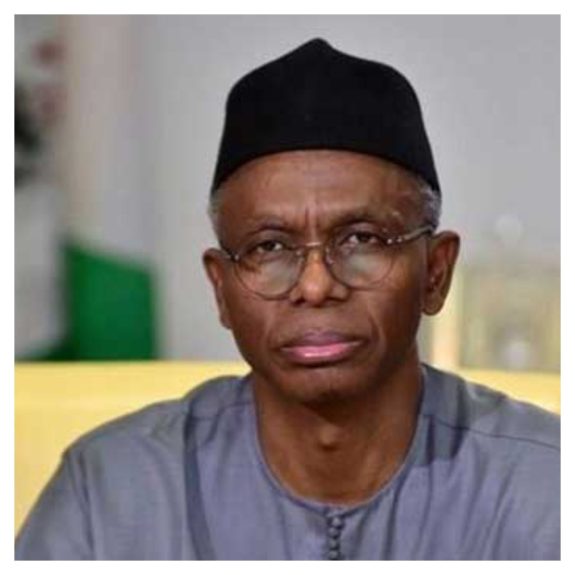
Hauwa Ali
Nigeria’s political landscape is no stranger to surprises, but the recent defection of Nasir El-Rufai, a key northern ally of President Bola Tinubu, has sent shockwaves across the country. Once considered one of Tinubu’s staunchest supporters, the former governor of Kaduna State has now distanced himself from the ruling All Progressives Congress (APC), which raises significant questions about the president’s chances for a second term.
For years, El-Rufai was seen as a master strategist in Nigeria’s power dynamics, playing a crucial role in Tinubu’s 2023 election victory. His departure not only signals a possible crack within the APC but also sparks discussions on whether this could threaten Tinubu’s re-election bid in 2027.
What led to this shocking move, and how will it reshape Nigeria’s political balance? More importantly, will it spell trouble for Tinubu’s ambitions for a second term?The reasons behind El-Rufai’s defection are layered and complex, converging to push him out of Tinubu’s inner circle.
First is the lingering grievances over ministerial nominations. One of the most immediate triggers for El-Rufai’s departure was the fallout over his ministerial nomination. Initially listed as a nominee, El-Rufai faced a setback when security reports allegedly recommended against his confirmation. Frustrated by what he perceived as an orchestrated political move against him, El-Rufai reportedly withdrew his interest in serving in Tinubu’s cabinet. His exclusion was a public embarrassment, and for a politician of his stature, it was seen as a slight that could not be ignored.

El-Rufai has always been a vocal advocate for Northern political dominance in Nigeria. While he supported Tinubu’s emergence in 2023, it was a strategic alliance to maintain Northern relevance in the national equation. However, Tinubu’s governance has increasingly leaned toward consolidating his power base rather than appeasing the Northern bloc that helped elect him. This shift reportedly disillusioned El-Rufai and other Northern leaders who felt sidelined in Tinubu’s administration.Defection in Nigerian politics is rarely about personal grievances alone. There is speculation that El-Rufai is repositioning himself for a possible presidential run in 2027 or aligning with another power bloc that could challenge Tinubu’s re-election.
With murmurs of dissatisfaction growing within the APC, El-Rufai’s move may signal the beginning of a realignment within Nigeria’s political elite.El-Rufai’s defection carries significant political consequences, not just for the APC but for the entire Nigerian political system.The APC has long been a coalition of political interests spanning Nigeria’s regions.
However, the party’s ability to maintain this delicate balance is being tested. If El-Rufai’s departure triggers further discontent among Northern politicians, Tinubu may struggle to retain the broad support that helped him win in 2023.
Already, some Northern governors and political figures are reportedly questioning Tinubu’s commitment to Northern interests. If these grievances are not addressed, the APC could face internal fractures that weaken its ability to contest in 2027 effectively.While the People’s Democratic Party (PDP) and other opposition groups have been relatively weakened, El-Rufai’s defection could give them a much-needed boost. A high-profile figure like El-Rufai leaving the APC creates opportunities for opposition parties to rally disenchanted Northern voters against Tinubu.
If El-Rufai aligns himself with another political force—perhaps forming a coalition with other estranged APC leaders—the opposition could become a formidable challenge in the next election cycle.Former President Muhammadu Buhari remains an influential figure in Northern politics. While he has remained silent since leaving office, his position on El-Rufai’s defection could be pivotal. If Buhari signals support for El-Rufai or other defecting Northern leaders, it could deepen Tinubu’s political troubles.
Despite these challenges, Tinubu is a seasoned politician known for his skill at manoeuvering complex political waters. However, El-Rufai’s exit presents a real risk to his 2027 plans.Tinubu’s 2023 victory was made possible by a strong Northern voter turnout in his favor. If key figures like El-Rufai successfully sway Northern opinion against Tinubu, it could significantly reduce his support base.To counter this, Tinubu must strengthen alliances with other influential Northern politicians and ensure that the region continues to benefit from his administration’s policies.
The APC has historically suffered from internal conflicts, and El-Rufai’s defection could exacerbate existing divisions. If the ruling party fails to manage these fractures, it could face a more unified opposition in 2027, making re-election arduous.Beyond political alliances, Tinubu’s second-term ambitions will also depend on his administration’s performance. With Nigeria facing economic hardship, high inflation, and security challenges, any additional political instability could further weaken his government’s credibility.
El-Rufai’s defection may not just impact Tinubu but could also reshape Nigeria’s political dynamics in broader ways like through the Emergence of a Third Force. Nigeria’s political system has long been dominated by the APC and PDP. However, El-Rufai’s move could accelerate discussions about forming a new political coalition. If key figures from both parties align under a new platform, it could create a credible third force that challenges the traditional two-party dominance.
Nigeria’s regional politics have always played a crucial role in elections. El-Rufai’s defection highlights growing regional tensions that could define the next election cycle. If the North begins to feel alienated under Tinubu’s leadership, it could lead to increased political manoeuvering to ensure a Northern president in 2027.

For El-Rufai, this move is as much about survival as it is about principle. In Nigeria’s fast-changing political environment, staying relevant often means making bold moves at the right time. Whether his defection will elevate his political career or sideline him in the long run remains to be seen.
El-Rufai’s defection is more than just an individual decision—it is a reflection of deeper political undercurrents that could define Nigeria’s future. For Tinubu, this is a wake-up call to consolidate his political base, address internal party grievances, and deliver on governance to retain credibility.
While it is too early to say whether this defection will derail Tinubu’s second-term ambitions, it has undoubtedly made the road to 2027 more unpredictable. The coming months will reveal whether Tinubu can weather this storm or if El-Rufai’s move is the first sign of a political shift in Nigeria’s power dynamics.
